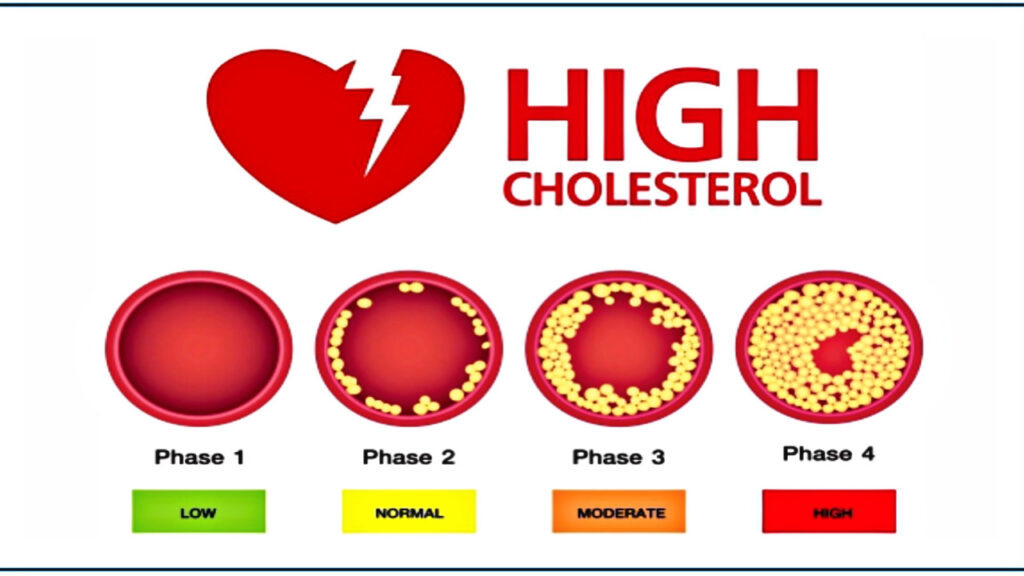High Cholesterol
High cholesterol is a common health concern that increases the risk of heart disease and stroke. Cholesterol is a waxy substance found in the blood, and while the body needs it to build cells and produce certain hormones, too much cholesterol can lead to clogged arteries. Fortunately, dietary choices play a significant role in managing cholesterol levels. Making smart food choices can help lower bad cholesterol (LDL) and boost good cholesterol (HDL), improving overall heart health.

Foods to Include in Your Diet
- Oats and Whole Grains
Starting your day with a bowl of oatmeal or whole grain cereals is a simple and effective way to reduce cholesterol. Oats contain soluble fiber, which binds to cholesterol in the digestive system and helps remove it from the body. Whole grains like barley, brown rice, and quinoa also provide fiber that supports heart health. - Fruits and Vegetables
Fruits and vegetables are rich in antioxidants, vitamins, and fiber, all of which contribute to lowering cholesterol levels. Apples, berries, oranges, and carrots are especially beneficial due to their high soluble fiber content. Vegetables like spinach, broccoli, and Brussels sprouts offer essential nutrients that support cardiovascular health. - Nuts and Seeds
Almonds, walnuts, flaxseeds, and chia seeds are excellent snacks that promote healthy cholesterol levels. These nuts and seeds contain healthy fats called polyunsaturated and monounsaturated fats, which can reduce LDL cholesterol while maintaining or increasing HDL cholesterol. They also have plant sterols that help block cholesterol absorption. - Fatty Fish
Fish like salmon, mackerel, sardines, and tuna are rich in omega-3 fatty acids. These healthy fats reduce triglycerides, lower blood pressure, and prevent blood clots, thereby protecting the heart. Including fish in your diet at least twice a week can significantly improve cholesterol profiles. - Legumes and Beans
Beans, lentils, chickpeas, and other legumes are excellent sources of protein and soluble fiber. They help reduce LDL cholesterol by binding with cholesterol particles and removing them from the bloodstream. Regular consumption of legumes can also improve blood sugar control and promote a feeling of fullness. - Healthy Oils
Replacing saturated fats such as butter or ghee with healthy oils like olive oil, canola oil, or avocado oil is important. These oils contain monounsaturated fats that help reduce LDL cholesterol and increase HDL cholesterol. Using them in cooking or as salad dressings can be heart-friendly.
Foods to Avoid or Limit

- Trans Fats: Found in many fried and processed foods, trans fats raise LDL cholesterol and lower HDL cholesterol. Avoid packaged snacks, baked goods, and fast food that contain hydrogenated oils.
- Saturated Fats: Limit intake of fatty cuts of meat, full-fat dairy products, and coconut oil as they can increase cholesterol levels.
- Excessive Sugar: High sugar intake can lower HDL cholesterol and increase triglycerides, negatively affecting heart health.
Lifestyle Tips
Besides dietary changes, maintaining a healthy weight, exercising regularly, quitting smoking, and managing stress are crucial steps in lowering cholesterol levels naturally.
By focusing on these heart-healthy foods and habits, you can effectively reduce high cholesterol and protect your cardiovascular health. Small, consistent changes in your diet can make a big difference over time.





